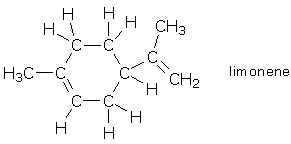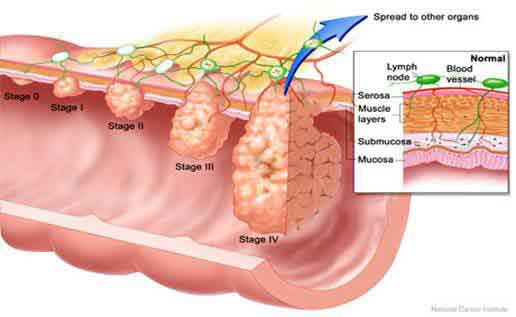PLANT DESCRIPTION

The tree species of Pinus Koraiensis is commonly called Korean Pine, it is native to Eastern Asia (Mongolia, Japan, Korea, Manchuria, Russia Far East) and it grows at moderate altitudes typically 600-900 m. Its leaves (needles) are in fascicles of five with a deciduous sheath, long from 7 cm up to 13 cm. The seeds are long between 15 and 18 mm and from these it is possible to obtain a nut oil which contains 11,5% of the fatty acid pinolenic acid (cis-5-cis-9-cis-12 octadecatrienoic acid).
Wikipedia, Pinus Koraiensis.
ACTIVE MOLECULES DESCRIPTION
The essential oil from the cones of Pinus Koraiensis (EOPK) is prepared after removing the seeds. The hydrodistillation of P. Koraiensis cones yieldes 1.07% (v/w) of essential oil.
Eighty-seven components, comprising about 96,8% of the total oil, were identified. The most abundant oil components are lemonene, alpha pinene, beta pinene.

Dried and pulverized P. Koraiensis leaves are immersed in distilled water and steam distilled using an apparatus with a condenser for 3 to 4 hours at 90°C. The volatile compounds are contained in the water soluble fraction, and are allowed to settle for 20 minutes. The oil is then separated and purified by microfiltration.
Chemical composition and antimicrobial activity of essential oil from cones of Pinus koraiensis. 2008
APPLICATIONS IN MEDICINE
It is reported that EOPK has an anti-hyperlipidemic effect through the up-regulation of the low-density lipoprotein receptor and the inhibition of acyl-coenzyme A.
A recent report on the effects of EOPK indicated that the oil has anti-obesity and hypolipidemic activity both in vitro and in vivo, using 3 T3-L1 cells and high fat diet-fed rats.
Additional studies have shown that EOPK is a potential anti-diabetic agent and that the nut of P. koraiensis has antioxidant activity in vivo. It significantly protects cells from beta pancreatic cytotoxicity and reduce the blood glucose level in diabetic mice when compared with the untreated control. Other studies have demonstrated that the Korean pine nut is an appetite suppressant, and reduces weight gain in mice fed a high fat diet.
Another application of EOPK is a significant antimicrobial activity especially against strains such as Candida Glabrata and Criptococcus Neoformans.
Essential oil of Pinus koraiensis leaves exerts antihyperlipidemic effects via up-regulation of low-density lipoprotein receptor and inhibition of acyl-coenzyme A: cholesterol acyltransferase. 2012
Anti-diabetic potential of the essential oil of Pinus koraiensis leaves toward streptozotocin-treated mice and HIT-T15 pancreatic β cells. 2013
Chemical composition and antimicrobial activity of essential oil from cones of Pinus koraiensis. 2008
THE ROLE OF EOPK IN COLORECTAL CANCER (HCT116)

Definition and epidemiology
Colorectal cancer is one of the most common forms of cancer in the Western world, mainly because of lifestyle habits which often include smoking, consumption of alcohol and a high fat, high protein, low finer diet.
World-wide CCR is the fourth most frequent tumor in the male population and the third most common in the female population; for what concerns mortality, CCR is placed at fourth place for men and fifth for women.
The areas with the highest incident rate for CCR are reported to be Australia, New Zealand, US, Japan and Western Europe.
Epidemiologia del tumore del colon retto, Italian Journal of Public Health. 2010.
Pathogenesis
The pathogenesis of colorectal cancer involves several processes, including enhanced cell survival, differentiation and proliferation. Most importantly, K-Ras and B-Raf mutations have been identified in 40% and 10% of colorectal cancers, respectively. Mutations in K-Ras and B-Raf activate PI3K/AKT and MAPK/ERK signaling pathways. In colorectal cancer, overexpression of PI3K/AKT and MAPK/ERK promotes cell survival, proliferation, and migration.
The p21 activated kinase (PAK) family of proteins has been identified as a novel target for cancer therapies. PAKs are downstream effectors of the Rho family GTPases, which regulate cell motility and survival. There are six isoforms of PAK that are classified into two families, Group I (PAK1-3) and Group II (PAK4-6). PAK1 is an important effector of Rac and Cdc42 that regulates cell transformation and tumor proliferation . Activated PAK1 enhances cell survival and migration via the AKT pathway, and stimulates transformation through the Ras/Raf/ERK/MAPK pathway. PAK1 knockdown was shown to inhibit the activation of β-catenin in colorectal cancer, thereby inhibiting Wnt/β-catenin signaling and proliferation. In addition, PAK1 overexpression occurs in a variety of human cancers, including breast, ovarian, and colorectal cancer.
Essential oil of Pinus koraiensis inhibits cell proliferation and migration via inhibition of kinase 1 pathway in colorectal cancer cells. 2014
Molecular Mechanisms
The research for the effects of EOPK on CCR was conducted following five steps, considering the main pathogenetic molecular pathways of cellular proliferation in CCR, which are connected to the activity of PAK1:
1) PAK1 is a central node for various oncogenic signaling pathways, including the MEK/ERK, PI3K/AKT, and Wnt/β-catenin ones. Its expression has been shown to be increased in HCT116 colorectal cancer cells, therefore upregulating these signaling pathways.
2) To investigate the effect of EOPK on PAK1, the cells were treated with EOPK (100μg/ml) and Western blotting was performed. EOPK significantly suppressed the protein expression of PAK1 in colon cancer cell lines, as shown in Figure 1C.

3)The researchers next performed cell cycle analysis following EOPK treatment: cells were treated with 100 μg/ml of EOPK for 24 h, and were then analyzed by FACS (fluorescence-activated cell sorting). Treatment with EOPK significantly increased G1-arrest in HCT116 cells (Figure 2A)
To prove whether EOPK suppressed the proliferation of human colorectal cancer cells or not, a cell growth assay was performed. This assay assessed the effect of EOPK on the long-term (5 days) growth of colorectal cancer cells. As shown in Figure 2B, EOPK significantly suppressed cell growth in a dose-dependent manner. Most importantly, 100 μg/mL EOPK suppressed HCT116 growth 99.9%. Consistently, a BrdU assay showed that EOPK treatment inhibited the proliferation of HCT116 cells in a concentration- and time-dependent manner (Figure 2C).
Cells were treated with EOPK (25, 50, 100 μg/ml) for 24 h, and cell migration was assayed by wound healing assay. The number of cells migrating into the scratched area was photographed (×100) and calculated as a percentage of migration (figure 2D).

4) To assess whether or not the PI3K/AKT, MAPK/ERK and Wnt/β-catenin signaling pathways contributed to the inhibitory effect of EOPK, the protein expression levels of PAK1, β-catenin, phosphor-AKT, and phosphor-ERK were investigated by Western blotting. EOPK remarkably suppressed the phosphorylation of AKT, ERK, and PAK1, as well as the expression of β-catenin in HCT116 colorectal cancer cells (Figure 3A). Interestingly, PAK1 knockdown enhanced the inhibitory effect of EOPK on β-catenin expression and phosphorylation of AKT and ERK in HCT116 cells (Figure3B).

5) PAK1 also plays a critical role in migration, invasion, and proliferation through its regulation of actin cytoskeletal reorganization. To determine whether the EOPK-mediated suppression of migration was due to inhibition of PAK1-mediated actin cytoskeletal rearrangement, an immunofluorescence assay was performed. It has been inferred that the knockdown of PAK1 enhanced EOPK-mediated alterations of actin cytoskeleton in HCT116 colorectal cancer cells.
Essential oil of Pinus koraiensis inhibits cell proliferation and migration via inhibition of kinase 1 pathway in colorectal cancer cells. 2014
SIDE EFFECTS
There are no collateral effects associated with EOPK as of now. However, allergic reactions can occur when it comes to people with high sensibility to nuts such as peanuts.
Vantaggi ed effetti collaterali dell'olio di pino.
CONCLUSION
In summary, the results demonstrate that EOPK reduces proliferation in vitro of HCT116 cells through G1 arrest, without affecting normal cells. EOPK-induced G1 arrest, inhibited cell proliferation and migration, and suppressed actin cytoskeletal rearrangement are permitted by the inhibition of PAK1.
Fluorouracil (5-FU) is a standard therapeutic agent used in the treatment of colorectal cancer since the 1950s. However, not all of patients respond to 5-FU. Thus, recent work identifying the antitumor effects of natural products such as EOPK indicates there may be a promising alternative therapeutic for the treatment of colorectal cancer.
In conclusion, there is great potential for the development of novel chemotherapeutics from the leaves of P. Koraiensis.
Essential oil of Pinus koraiensis inhibits cell proliferation and migration via inhibition of kinase 1 pathway in colorectal cancer cells. 2014
Chiara Raviola, Margherita Turinetto